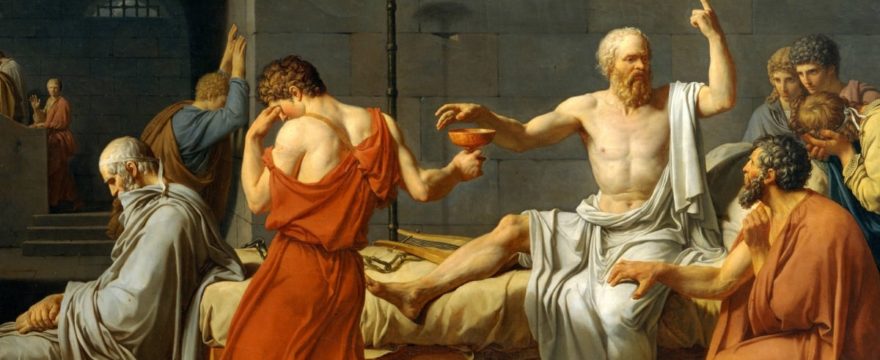We are each of us dying. Even philosophers. Socrates said that the purpose of philosophy is to learn to die well. He also lamented that things do not last. While he was bold about the options facing him in death in the Apology, at the end of his own life he covered his face so that his disciples could not see him lose confidence.
How do we suffer well? How do we die well? I have just finished a book titled “Job: A Philosophical Commentary,” and I think Job suffers well by coming to find meaning in the end. “Now I see you and I repent.” He hadn’t seen before. Why hadn’t he seen? Specially, why hadn’t he seen the glory of God revealed in creation which is what God points Job to consider? It took significant suffering to get Job to consider his own failure to see what is clear and repent.
All of us are dying. Many of the world’s religions are invented to minimize death or ease us through it to another realm. The undiscovered country from whose bourn no traveller returns. Death should be startling. It should wake us up to stop and think. Many of the religious and therapeutic approaches to death do just the opposite. They say it is a mystery, no one can understand it, we should do our best and enjoy life while we’re here and leave the place better than we found it. Others say death is part of a cycle of life or a journey up the great ladder of being to unity with the divine.
But what if death isn’t unnatural? What if it isn’t original? What if it is so disturbing because it is meant to disturb us? It calls us to stop and think about our condition. Not just our physical condition and prudential solutions for a longer life. It calls us to stop about our spiritual condition. What if the physical death of our body is a natural sign of the spiritual death of our soul? Perhaps we are already dead in the most important sense. Perhaps we were born dead in our trespasses and sins and we need to be born again. Physical death cannot be minimized because spiritual death cannot be minimized.
God’s rule, providence, is over all things both general and specific. Not even a bird falls to the ground without his knowing it. He has numbered our days. And so let us learn to count our days. If we have exchanged the knowledge of God as our highest good for something else then we will also minimize death. We will treat it as the end of our existence or a journey to another realm but not as a call to repent. Far from death demonstrating the hiddenness or distance of God it is proof of his close and intimate work in our lives. The very thing so often used to deny God’s goodness and tender love is proof of just these things. But understanding that requires understanding our rejection of the clear revelation of God. When we have understood that will we say “now my eyes see you and I repent.”

Leave a Reply